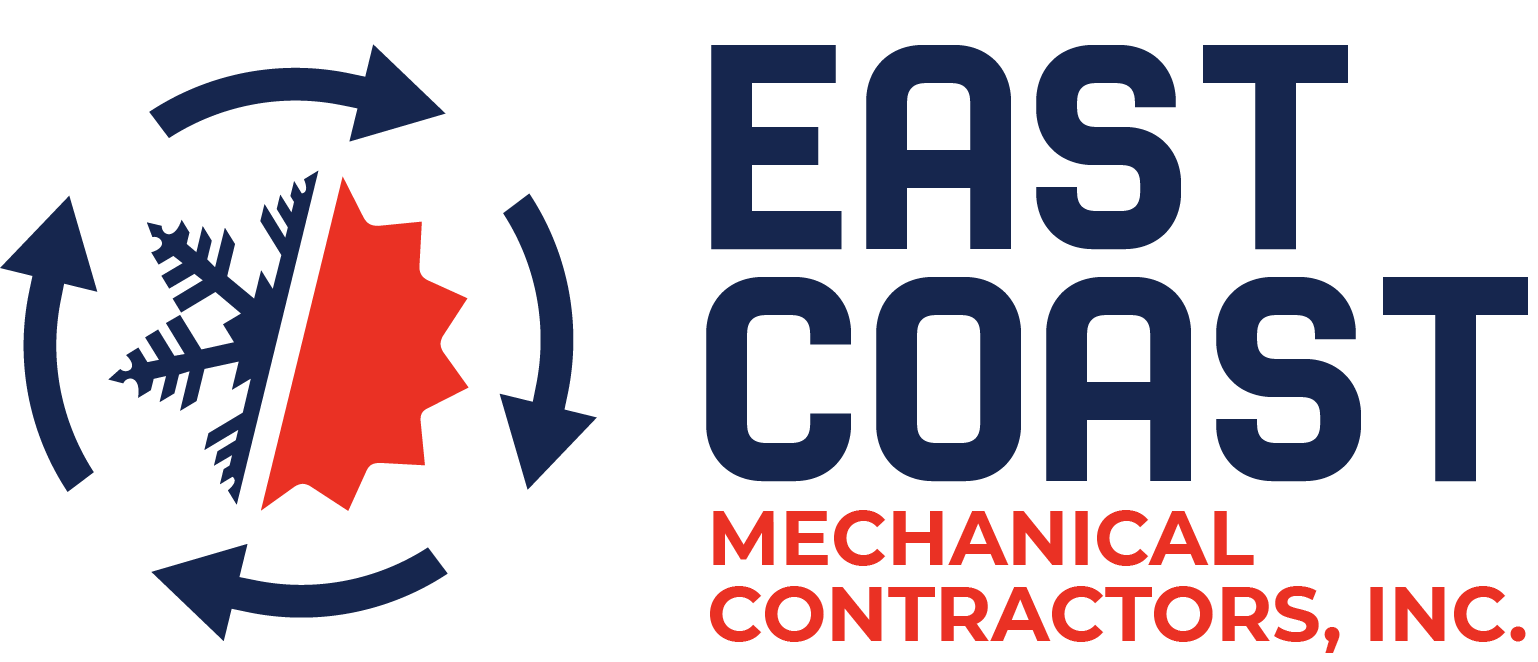The mechanisms that work behind cooling and heating our homes seems to be complicated concepts. In reality, the basics of heating and air conditioning are quite understandable. An HVAC system that stands for Heating, Ventilation, and Air Conditioning aims to make the indoor environment comfortable.
HVAC systems are divided into four categories which come in different sizes and specifications that fit into your particular home or business.There are split systems, hybrid systems, mini split systems, and packaged heating and air systems. Each one of these types of HVAC units have pros and cons. Knowing these factors can help you decide which is best for your needs. Let East Coast Mechanical match you with the specific type and model to meet your needs today!
Common Types of HVAC Services
Split Systems
The most common type of HVAC systems is the split system for heating and cooling. As the name would imply, the system is split between two main units, one for heating and one for cooling. These systems are notable because they contain both indoor and outdoor units, which are easily recognizable. These types of HVAC units have a cooling system outside, which uses refrigerant, compressors and coils to cool air, and a fan to blow out hot air. These are usually the large AC units placed outside the home, which run during the summer. The vents inside the home have an intake vent and an output vent to manipulate the air flow.
The split system also has a heater, usually located in a basement or other storage space, which uses gas to heat the house. This is dispersed by either a fan or an evaporator to circulate the air. This system uses a traditional thermostat centrally located in the home to manage the temperature and is able to keep most houses at your desired temperature. Some units are also packaged with purifiers or humidifiers so no matter the weather your interior is breathable with well circulated clean air. These systems are most widely used because they are generally adjustable for most environmental factors.
Hybrid Split System
A HVAC hybrid system is similar the split systems, but with some key differences. These systems are on the rise due to their ability to mitigate energy costs through their electric hybrid heating system. This key difference, usually set by the owner, sets these types of HVAC systems apart from the rest of the pack. The ability to switch between gas power, which is quicker and more complete, to electric, which is more efficient and quieter, allows homeowners to decide how they want to heat their home. Useful in more mild climates that are capable of taking advantage of this during months where it isn’t too cold, and electric heat will do just fine.
This system uses traditional ducts, as well as centrally located thermostats. Additionally, it provides all the benefits of a split system, but with the added option to conserve energy, and lessen utility bills. Most solar air conditioning systems are hybrid, meaning they use traditional electricity sources in addition to solar power. Hybrid systems are more popular in very hot environments. When it’s necessary to run the air conditioning at night and there’s no sun to power the system, a hybrid system is suitable.
Mini-Split System
A duct-free, or mini-split system, is a unique system with large upfront costs, but big benefits for certain needs and applications. These types of HVAC units are individual units in each room, providing greater independent control. These units are mounted on walls indoors and are usually attached to an outdoor compressor. This installation process is expensive, and visually obvious for the owners. However, these units are perfect for new additions to homes, such a garages, additions, or additional buildings. The mini-split is easier to install because it does not need to be tied into the duct system. This allows independent control of each unit.
These types of HVAC units are also beneficial for service businesses such as motels or venues, allowing tenants to control individual temperatures and conditions. Another benefit is energy conservation. Since individual rooms that are being used are being heated, and unused rooms are not wasting energy. This is why individuals retiring or downsizing could seek to install these systems. Keeping the rooms, they use warm and the rooms they do not use from sapping energy. These systems to require regular and intensive cleaning and maintenance, which is important to prevent the cost of repairs and total replacements are expensive.
Packaged Heating and Air
Out of all the types of HVAC units, packaged heating and air is the most niche. The system is a contained heating and air unit, that is stored within the house. It is usually kept in an attic or top floor storage space. It serves to both cool and heat a house. Its compact size makes it useful for smaller spaces or offices and allows it to be placed within the home if an exterior system is not an option. Additionally, these types of HVAC systems are able to be very efficient, and easily maintained. They are generally used in warmer climates since the heating system is not as powerful as other options. The heat is generally electrically generated which is more expensive than gas.
Common Types of HVAC Services
In summary, there are many types of HVAC units, but now you’re a little better prepared to decide which is perfect for you. The Split system is the most used in New Jersey, but hybrids are on the rise due to their energy efficiency. Mini split systems work best in the service industry, and packaged heating is perfect for small places, or warm climates like Florida. Each of the types of HVAC units has pros and cons and to help navigate them you can consult an East Coast Mechanical Technician.
Contact us East Coast Mechanical
Email: ecmcecmc@aol.com Address: 5133 W Hurley Pond Rd Suite A, Wall Township, NJ 07727 Hours: Monday to Friday 8 AM to 5 PM and Closed Saturday and Sunday.

